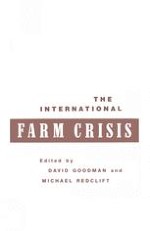1989 | OriginalPaper | Buchkapitel
French Agriculture and the Failure of its European Strategy
verfasst von : Pierre Coulomb, Hélène Delorme
Erschienen in: The International Farm Crisis
Verlag: Palgrave Macmillan UK
Enthalten in: Professional Book Archive
Aktivieren Sie unsere intelligente Suche, um passende Fachinhalte oder Patente zu finden.
Wählen Sie Textabschnitte aus um mit Künstlicher Intelligenz passenden Patente zu finden. powered by
Markieren Sie Textabschnitte, um KI-gestützt weitere passende Inhalte zu finden. powered by
Like the policies introduced by the leading industrial nations between the 1930s and the post-war restructuring, the primary aim of French agricultural policy is to prevent the market instability that is inherent in the competitive character of a sector made up of many different producers. Although the conditions of these policies may vary in different States, the underlying principle is the same and rests on the old law of economics that emerges from the observations made by King on the price of wheat in eighteenth-century England: slight overproduction can bring about a marked fall in market prices, just as conversely, a slight shortage can lead to a strong increase in prices. It is necessary and sufficient, therefore, to withdraw excess production from the market by either destroying or stockpiling any surpluses or, a better solution since it can also be profitable, by exporting them in order to reestablish the normal price level. Conversely, stocks should be run down and supplies imported when there is a shortage and market prices have risen excessively. These operations are the essence of the activities of the Commodity Credit Corporation created in 1934 in the United States, of the French FORMA of 1953, and the European FEOGA since 1962.
